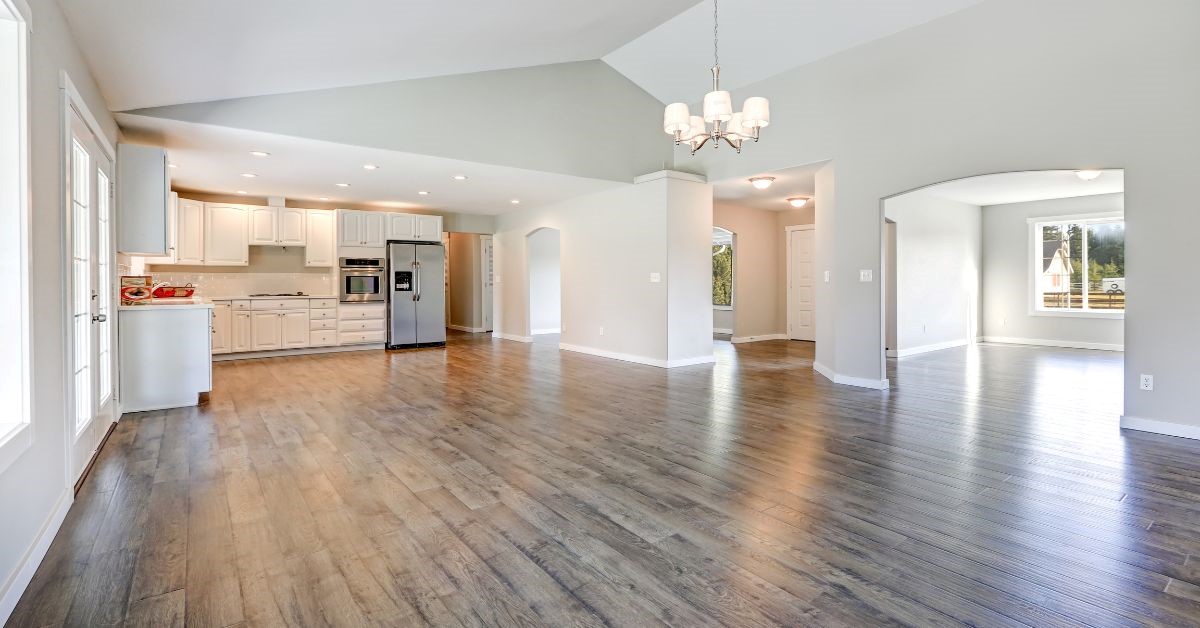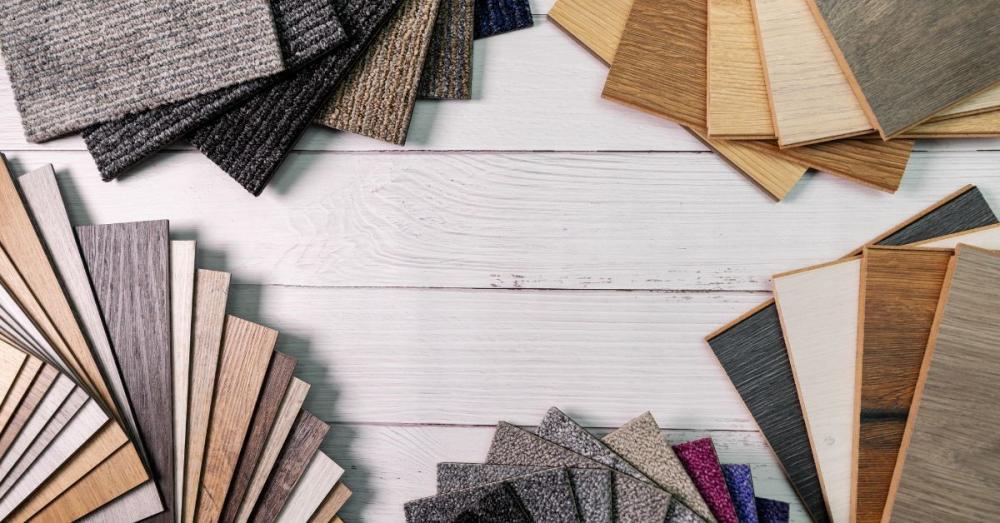How Flooring Can Affect the Resale Value of Your Home
If you’re eager to improve the resale value of your home, here’s how flooring can affect value and increase positive perception among potential buyers.

Quality flooring sets the tone for the aesthetic appeal and functional quality of a space, making it an essential element in any home design. Whether you’re planning minor updates or a complete overhaul, choosing the right flooring can transform your home’s curb appeal and make it more desirable to potential buyers.
The Role of Flooring in First Impressions
Homebuyers create lasting opinions in the first few seconds of stepping inside a house. Flooring often dictates how welcoming and polished those first moments feel. Details such as scratches, stains, or outdated patterns often derail a buyer’s excitement. Walking into a room with visible wear on the floor can make the entire home feel older, even if the rest of the decor and renovations are modern.
Clean, contemporary options like polished hardwood or seamlessly installed luxury vinyl flooring make a home look move-in ready, which creates immediate value for buyers. A thoughtfully chosen floor can also define the aesthetic vision of the rest of the home. Modern or timeless flooring sets a visual tone that helps buyers envision their style blending seamlessly with the house.
The Connection Between Style and Value
Modern trends in flooring influence how much appeal your home holds in today’s competitive real estate market. For example, luxury vinyl plank and engineered wood are increasingly popular for their mix of elegance and convenience.
Homes with desirable styles gain higher buyer interest, which showcases how flooring affects the resale value of your home in a tangible way. Catering to style-conscious buyers with updated flooring choices can mean securing stronger offers during the sale.
Timeless, neutral styles like medium-tone hardwood or stone-inspired tiles hold long-term value. Buyers often shy away from bold, niche patterns that lack universality. Selecting flooring materials rooted in classic designs maximizes resale potential by prioritizing broad appeal, especially when the floors complement different personal tastes.
Practical buyers also appreciate style when it balances with functionality. For example, waterproof flooring like luxury vinyl works beautifully in kitchens or bathrooms while maintaining aesthetic charm. Combining practicality with trend-savvy designs helps homeowners optimize the intersection of style and value when preparing their properties for the market.
Why Materials Matter in Home Resale

Prospective buyers often associate premium materials, such as hardwood or natural stone, with luxury and long-lasting value. The right materials encourage confidence in buyers, as these materials signify durability and require less frequent replacement. A seller who invests in well-chosen flooring materials often enjoys higher offers and quicker sales.
Even when homes look beautiful otherwise, flooring that appears cheap or poorly maintained sends the wrong signal and may reduce resale potential. Selecting flooring materials with a focus on longevity makes all the difference. Hardwood floors, for example, often remain a sought-after feature due to their decades-long lifespan when cared for properly. Tile stands firm as a choice for high-use areas like kitchens or bathrooms, where moisture resistance matters.
Buyers also consider how flooring materials impact long-term maintenance costs, which can influence their willingness to pay a premium for a home. Scratch-resistant finishes, water-resistant coatings, and low-maintenance surfaces like engineered hardwood appeal to those who want durability without constant upkeep. A home that offers high-end materials and practical, low-maintenance solutions can attract a wider range of buyers, increase demand, and maximize resale value.
The Flooring/Home Size Connection
Perception can vastly alter how appealing a space feels to buyers. Light-colored or wide-plank flooring often makes smaller spaces appear larger due to its ability to brighten and unify different zones. Conversely, uneven flooring patterns or colors disrupt the visual flow, making even spacious areas feel cramped or disjointed.
Buyers respond positively to flooring choices that help large spaces feel unified or small rooms feel expansive. Continuous flooring throughout major living areas accomplishes this by creating a seamless flow from one room to another.
Homes without cohesive flooring may unintentionally appear visually fragmented. Changing materials or colors every few feet interrupts the flow that buyers look for in modern homes. Opting for a singular style throughout main areas enhances spaciousness and fosters a sense of cohesion buyers actively seek.
The Importance of Maintenance in Resale Value
Well-maintained flooring creates far greater buyer confidence than flooring that shows signs of wear. Scuffed wood, peeling laminate, or discolored tile points to ongoing burdens for new owners. Keeping floors in excellent condition, no matter the material, highlights how flooring affects the resale value of your home by creating an overall image of a property worth its asking price.
Different flooring types demand various kinds of care. Refinishing wood floors, sealing tiles, or deep-cleaning carpet helps floors look their best before buyers view the home. Neglect allows small issues to snowball into larger drawbacks that reduce perceived property value.
Buyers don’t just see worn flooring as an aesthetic issue—they factor it into their negotiation strategy. Visible wear suggests potential hidden maintenance problems and gives buyers leverage to push for price reductions or repair credits. In competitive markets, homes with pristine flooring can justify stronger asking prices and minimize last-minute concessions, directly impacting the final sale value.
Flooring condition can become a deciding factor when multiple homes in the same price range compete for offers. Keeping floors in top shape isn’t just about appearance; it’s a financial strategy that prevents last-minute price cuts and strengthens a seller’s negotiating position.
The Best Path to Resale Value
The flooring you choose determines how buyers perceive your entire home. A carefully selected floor reflects style, practicality, and proper maintenance, which makes all the difference in the buyer’s final decision. Homes with upgraded, cohesive, and well-maintained flooring consistently stand out in competitive markets.
If you’re preparing to sell your home, improving or upgrading your flooring could lead to notable gains. Working with knowledgeable professionals makes every flooring choice more impactful.
Flooring stores like iDeal Floors offer guidance and services that help homeowners find high-quality options that align with their style and property goals. Thoughtful flooring decisions, backed by expertise, result in materials that hold their value and attract offers from more buyers.


Comments